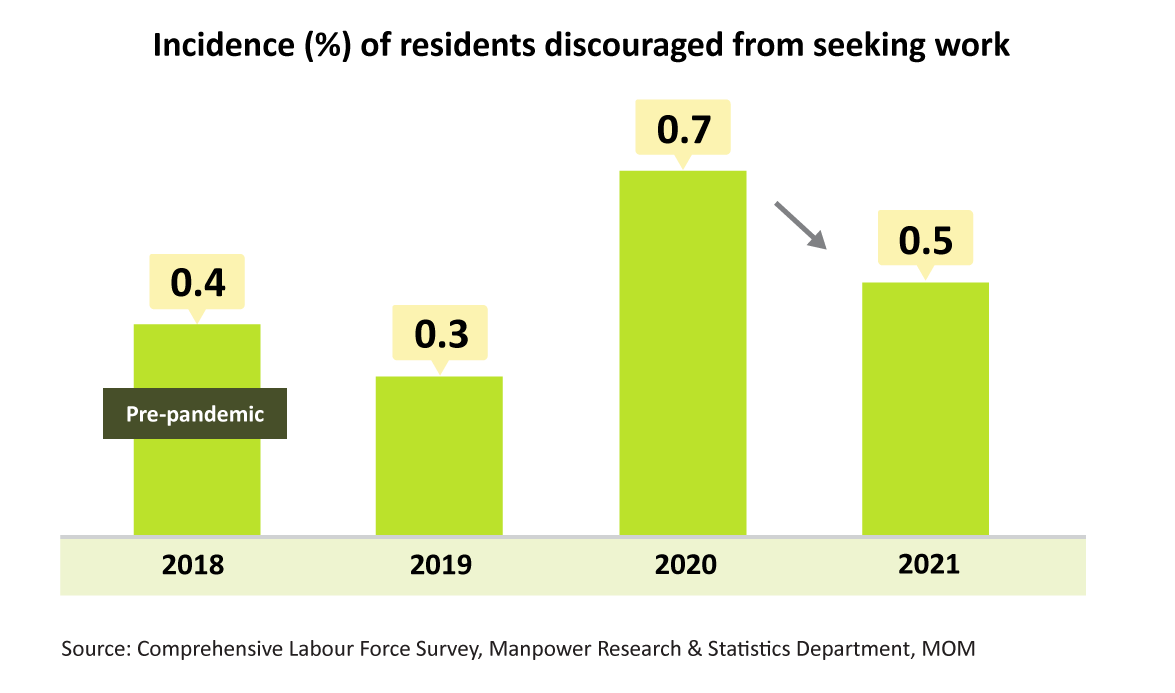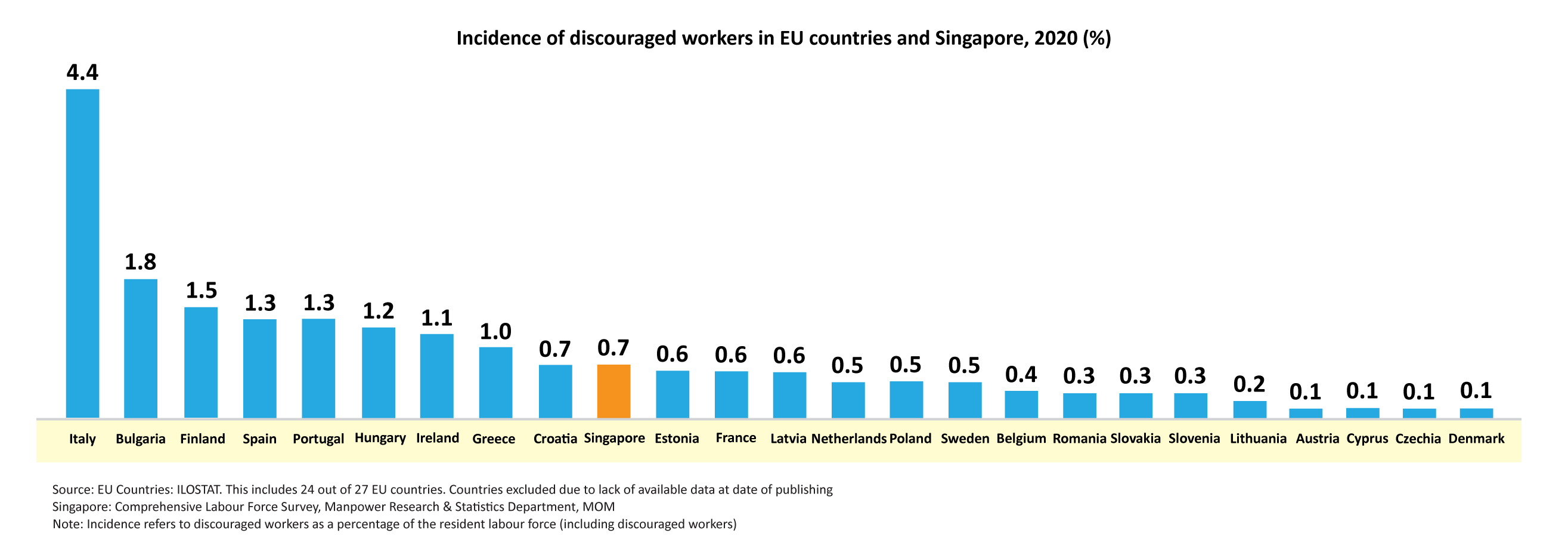Discouraged workers through the pandemic
In Singapore, the incidence of discouraged workers rose from 0.3% in 2019 to 0.7% in 2020 due to the sharp slowdown in economic activities. The incidence has since decreased to 0.5% in 2021, in line with the gradual labour market recovery.
As the incidence at 0.5% in 2021 remains slightly higher than the pre-COVID level in 2018, it is important for the workforce to take on training to equip themselves with the skillsets relevant in today's economy. Discouragement could also be due to the perception of lack of suitable work; therefore, employers are encouraged to motivate our discouraged workers in returning to the workforce by offering flexible work arrangements (FWAs) that are suitable to help them manage work-life needs while giving them the ability to contribute as a valuable employee. For instance, a work schedule with flexi-hours, job-sharing or one that will allow them to work remotely will certainly come in handy to encourage discouraged workers back into the labour force.

How does Singapore compare?
Though the term 'discouraged worker' can seem negatively reflective of the nature of the job market, Singapore is still one of the countries that maintains a low proportion of resident discouraged workers, comparable to our peers in the European Union (EU). At 0.7% incidence in 2020, this number stands well relative to our international peers in Italy (4.4%) and Finland (1.5%).

Have we been doing it differently?
While our numbers for discouraged workers remain low, older workers form the majority of the discouraged workers pool, similar to that of our international peers. Therefore,
one segment of discouraged workers that we should continue to pay attention to is older workers. Employers are being encouraged by the government to support older workers through the Senior Worker Support Package, which include the Senior Worker Early Adopter Grant. Such subsidies can help provide more financial aid to companies who might deliberate on a lower-waged, younger candidate who has less work experience than an older worker.



Singapore is not unique; many other countries are also looking at this demographic of discouraged workers. Our efforts also mirror what other countries are also doing. For instance, in the United Kingdom, businesses are encouraged with the aid of external organisations such as Business in the Community and their age-inclusive partner programmes like Still Ready for Work in Ireland, to help employers develop intergenerational workplaces that offer recruitment opportunities to those over the age of 50.
By keeping abreast with the working styles and habits of workers as well as by being agile to the needs of existing workers, we can lower the chances of these workers from dropping out of labour force and being discouraged workers. Only then, can we make use of the many programmes in place both on a national and corporate level to motivate current workers to stay employed, and encourage those discouraged to come back into employment.
